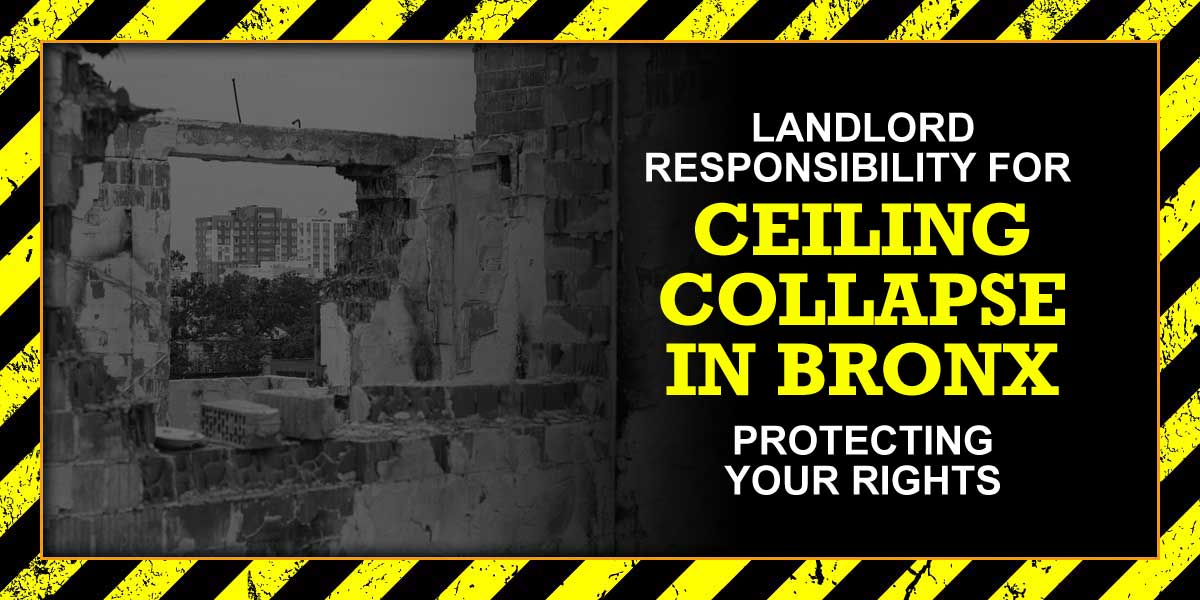Ceiling collapses are frightening and potentially dangerous incidents that can leave Bronx tenants feeling overwhelmed. If you’ve experienced a ceiling collapse in your apartment, understanding your rights and your landlord’s responsibilities is essential to ensure your safety and seek compensation.
Landlord Obligations in New York State
In New York, landlords have a legal duty to maintain their properties in a habitable condition. This includes:
- Maintaining structural integrity: Landlords must ensure that walls, floors, ceilings, and other building components are safe and structurally sound.
- Promptly addressing repairs: Tenants must report any signs of potential ceiling collapse like leaks, cracks, or sagging. Landlords are legally obligated to address these issues within a reasonable timeframe.
- Negligence and liability: If a landlord fails to address known hazards or performs inadequate repairs, they may be held liable for injuries or damages resulting from a ceiling collapse.
What to Do if Your Ceiling Collapses in the Bronx
- Prioritize safety: Immediately evacuate the affected area and contact emergency services if necessary.
- Document everything: Take photographs and videos of the damage and the surrounding area. Keep records of any communication with your landlord or management company.
- Seek legal advice: An experienced premises liability attorney, like those at The Law Offices of Michael T. Ridge, can help you understand your rights, assess your case, and pursue compensation for your losses.
How Can The Law Offices of Michael T. Ridge Help?
Our Bronx-based law firm has a strong track record in representing tenants who have been harmed due to landlord negligence. We offer free consultations to examine the circumstances of your ceiling collapse and explain your legal options.
Contact us today at 1-800-THE-BRONX (1-800-843-2766) or visit our office at 910 Grand Concourse and schedule your consultation. We fight tirelessly to protect the rights of Bronx tenants.
Disclaimer: This article provides general information and is not intended as legal advice. Each case is unique, and it’s always advisable to consult a qualified attorney for personalized guidance.
